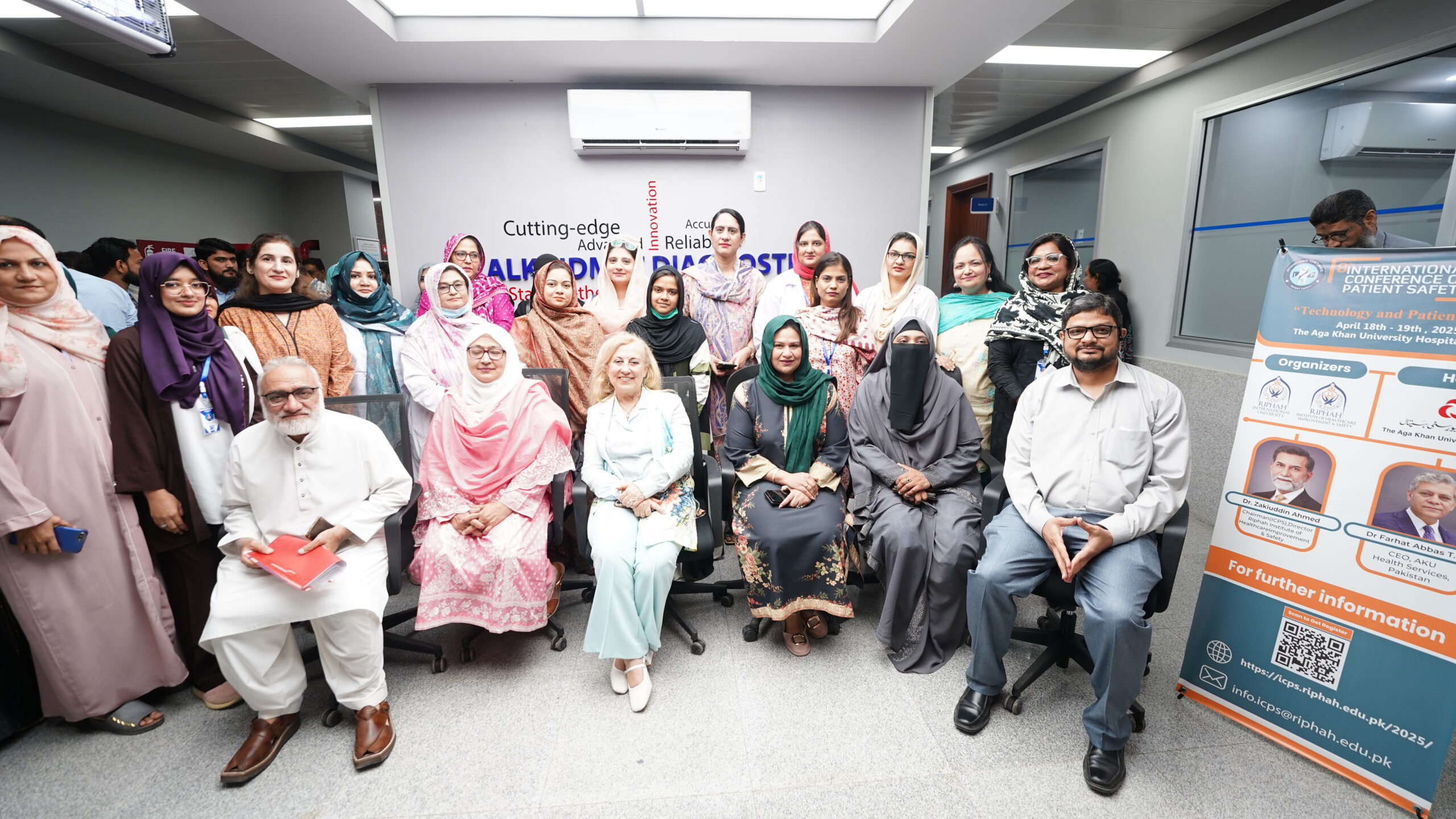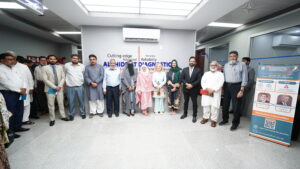
Alkhidmat holds Pre-Conference Workshop on Patient Safety
Alkhidmat Karachi, in collaboration with Riphah Institute of Healthcare Improvement (RIHIS), organized a pre-conference workshop on Patient Safety at the Alkhidmat Nazimabad Hospital Auditorium on Thursday. This workshop was held in anticipation of the 8th two-day International Conference on Patient Safety, which is scheduled to take place at Aga Khan University Hospital, Karachi, on April 18 and 19, 2025. Titled “Unit-Based Comprehensive Safety Program,” the workshop aimed to familiarize healthcare professionals and administrators with modern and effective methods for ensuring patient safety. Participants included medical superintendents, hospital CEOs and MDs, departmental heads, quality and hospital managers, and nursing heads. Speakers included Dr. Seval Akin, Chief Quality Officer at Baskent University Hospitals Network (Turkey), Dr. Saqib Ansari, Director, Alkhidmat Medical Services and Dr. Saima Aslam, Training Consultant at Riphah Institute. They provided insights into the implementation of unit-based safety programs, offering practical approaches to enhance patient safety at the unit level. The speakers emphasized that such a model helps organize and integrate safety processes across all hospitals. Experts stated that the effective use of safety assessment tools allows for the timely identification of risks faced by patients during treatment, enabling prompt life-saving interventions. However, correct and timely use of these tools is crucial. These tools assist medical staff in making accurate decisions and enhancing safety measures. Experts also highlighted the critical importance of teamwork and effective communication in the healthcare sector, stating that when patient safety is a priority, collaboration and timely communication among staff reduce the chances of errors and improve treatment quality. To make patient safety measures sustainable, hospitals and medical institutions must foster an environment where every individual feels a sense of responsibility and consistently adheres to safety protocols. Additionally, strong safety cultures can be developed through staff training, the use of modern systems, and continuous engagement in programs and workshops.


